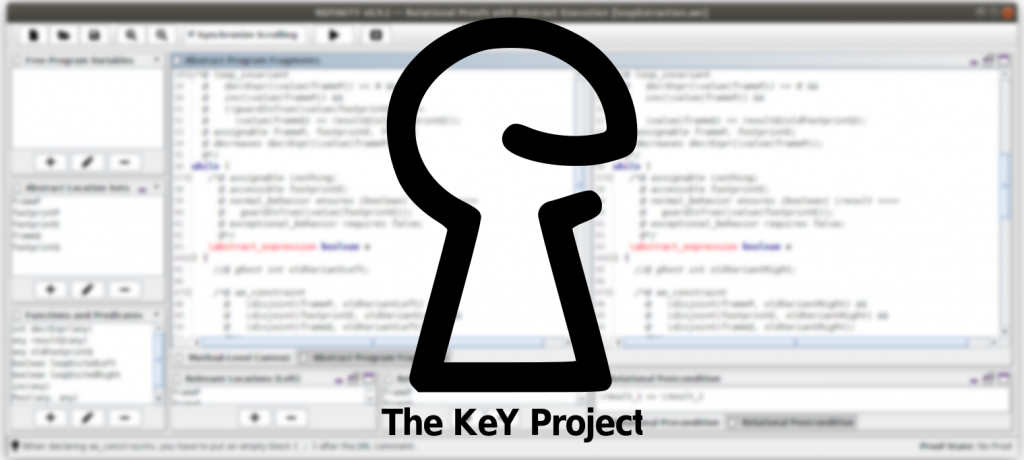In his recently finished Master’s thesis, Henrik Torland Klev verified (parts of) EVA, the main support system for elections in municipalities and counties in Norway, using the KeY prover.
Continue reading “Norwegian Governmental Election Software Formally Verified with KeY”Tag: verification
Proving the Correctness of Program Transformations with Abstract Execution and REFINITY
Summary. Abstract Execution (AE) is a new program analysis technique for automatically proving second-order properties about programs. It is based on the symbolic execution of abstract programs with second-order symbolic stores.
Continue reading “Proving the Correctness of Program Transformations with Abstract Execution and REFINITY”Proving JDK’s Dual Pivot Quicksort Correct
by Bernhard Beckert, Jonas Schiffl, Peter H. Schmitt and Mattias Ulbrich
Sorting is a fundamental functionality in libraries, for which efficiency is crucial. Correctness of the highly optimized implementations is often taken for granted. De Gouw et al. have shown that this certainty is deceptive by revealing a bug in the Java Development Kit (JDK) implementation of TimSort.
We have now formally analysed the other implementation of sorting in the JDK standard library: A highly efficient implementation of a dual pivot quicksort algorithm. We were able to deductively prove that the algorithm implementation is correct. However, a loop invariant which is annotated to the source code does not hold. Continue reading “Proving JDK’s Dual Pivot Quicksort Correct”
New Feature: State Merging in KeY
Current nightly builds of KeY contain a new feature called state merging, a technique to decrease the size of proof trees arising from the symbolic execution of large programs. Continue reading “New Feature: State Merging in KeY”


